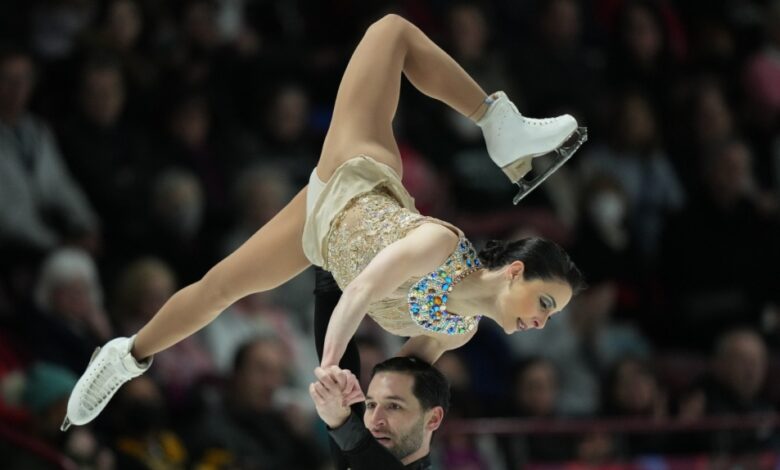Deschamps speaks out about ADHD in figure skating

VANCOUVER –
Getting to know your skating partner can be difficult and time consuming process, say Canadians Maxime Deschamps and Deanna Stellato-Dudek, and doing so involves lots of trust and care.
Which makes being honest about health conditions important for success.
Deschamps said he suffers from attention deficit hyperactivity disorder, colloquially known as ADHD, which is a chronic neurodevelopmental disorder that researchers estimate affects approximately five per cent to nine per cent of children and three per cent to five per cent of adults.
“She’s a great partner,” he said of Stellato-Dudek. “ADHD is like a roller-coaster. It could make stuff difficult but it also helps us improve. We know each other better.”
The pair are competing in the Skate Canada International Event in Vancouver over the weekend.
The signs of ADHD, according to the Centre for ADHD Awareness Canada, can include issues with: attention, organization and time management, self-regulation and self monitoring, impulsivity and emotional regulation.
Dr. Doron Almagor, a psychiatrist at The Possibilities Clinic — a health clinic in Toronto specializing in ADHD — said the condition is commonly recognized in children with many adults going undiagnosed for years.
“ADHD is a terrible name for it. It’s an attention dysregulation, it doesn’t always have hyperactivity,” he said. “You have this difference in the way you organize things and the way your brain is, from birth and throughout your life.”
The consequences of it can become more severe if left unchecked as you age, such as struggles with impulsivity, substance use and even simple things such as forgetting to do your taxes, he added.
Tara Doherty, who works for the clinic as an ADHD coach and its director of academic services, was a junior Canadian national ice dance champion in 2001.
“Working in a pair is like a marriage, if you don’t understand the needs and strengths of that person, there will be conflict,” she said.
Sports can be beneficial to managing ADHD, Doherty said.
“There are a lot of benefits to sport in terms of self-regulation for individuals with ADHD,” Doherty said. “The structure, the goal oriented mindset, you’re working to something concrete, the structured routine so every day is quite similar is really great to help in terms of managing focus and time.
“Focusing on that goal, you get on the ice and have something to focus for, they tend to excel in that area.”
But, Doherty added, what is needed is more mental health support for athletes to encourage those who have ADHD, or other neurological conditions, to feel they can share those diagnoses with their coaches and settle on a plan to help them achieve success in their respective sport.
Deschamps agreed with the ability to concentrate on his individual sport.
“When I come into competitions, concentration is really easy for me. It’s mostly at home where it’s challenging on a daily basis,” he said.
In spite of the challenges, Deschamps said his honesty with Stellato-Dudek has helped their partnership.
“It makes it a challenge to overcome but it’s good evolution towards each other and we know each other better and we can get through this.”
This report by The Canadian Press was first published Oct. 27, 2023.




